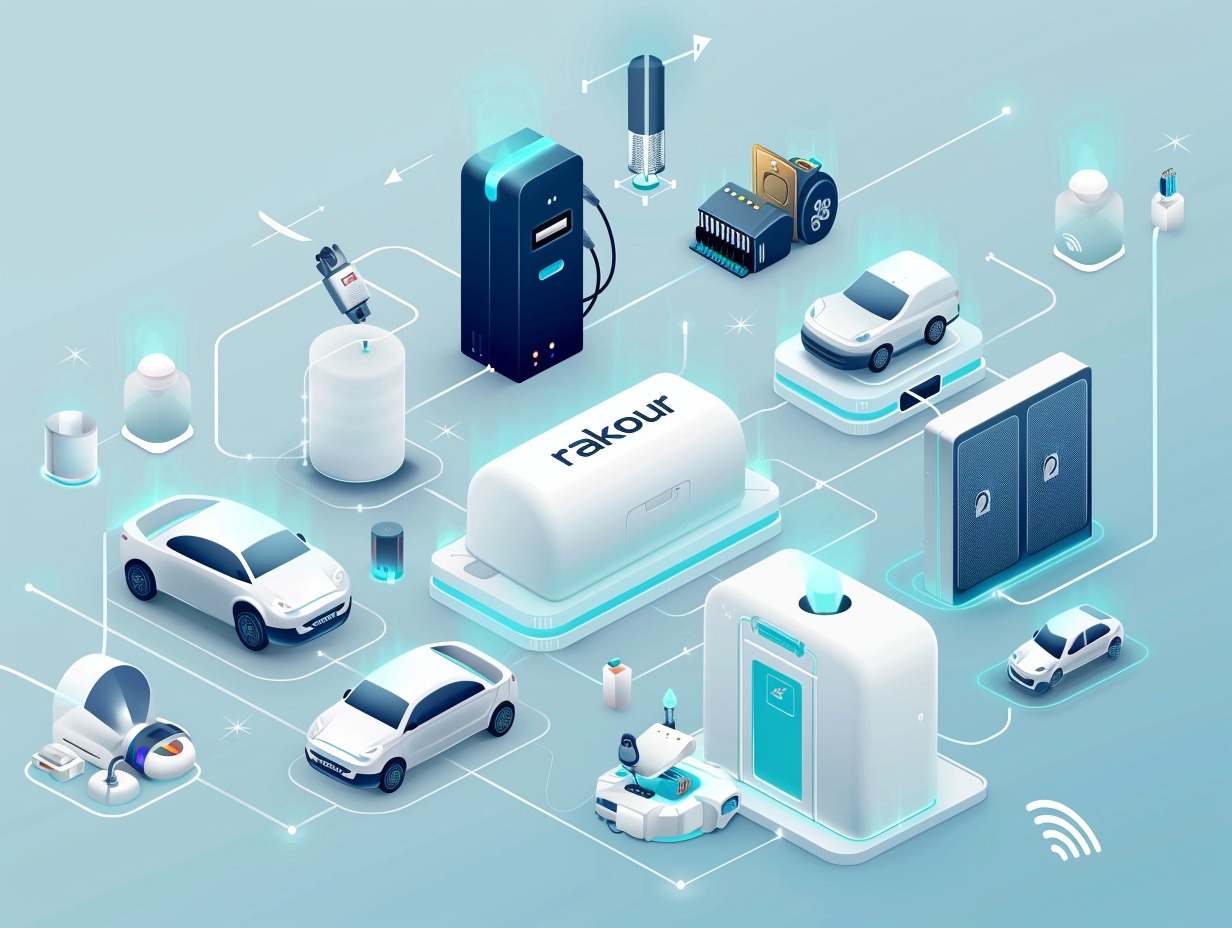Key Characteristics of Lithium Batteries for Glucose Meters

Essential Features of Lithium Batteries
Lithium batteries are lightweight, compact, and designed for high energy density, making them ideal for glucose meters. They maintain a consistent output voltage, ensuring that medical devices operate reliably. Additionally, lithium batteries have a low self-discharge rate, allowing them to retain charge for extended periods, which is crucial for users who may not frequently change batteries.
Advantages Over Traditional Battery Types
Lithium batteries offer several advantages over traditional batteries, such as alkaline or nickel-cadmium. They provide longer runtimes, enabling glucose meters to function for months without replacement. Furthermore, lithium batteries are less prone to leakage and can operate effectively under a wide temperature range, making them suitable for various environments and users.
Power Efficiency and Reliability
One of the standout characteristics of lithium batteries is their power efficiency. They deliver high voltage and stable performance throughout their lifecycle, ensuring that glucose meters provide accurate readings. Their reliability is essential, particularly for users who depend on precise glucose monitoring for health management. With minimal maintenance required, lithium batteries support uninterrupted daily use.
Cost-Effectiveness
While the initial cost of lithium batteries may be higher than traditional types, their longevity and performance translate into cost-effectiveness over time. Users benefit from reduced frequency of replacements, resulting in savings on battery purchases. Moreover, their efficiency ensures optimal performance of glucose meters, which can prevent costly medical complications.
Enhancing Glucose Meter Functionality with Lithium Batteries
Improved Accuracy and Consistency
Lithium batteries enhance the functionality of glucose meters by providing stable voltage output, which leads to improved accuracy in blood glucose readings. This consistency is critical for users who rely on precise measurements to manage their health. With better calibration and fewer fluctuations, users can trust the results provided by their meters, making informed decisions about their health and medication.
Extended Battery Life and Usage
One of the significant advantages of incorporating lithium batteries into glucose meters is their extended battery life. These batteries typically last longer than traditional alternatives, allowing users to monitor their glucose levels without worrying about frequent replacements. This feature not only enhances user convenience but also ensures that meters remain operational during critical moments, promoting better health management.
Compact and Lightweight Design
Lithium batteries contribute to a more compact and lightweight design of glucose meters, making them easier to carry and use. Their smaller size allows for sleeker device construction, which is ideal for users who are always on the go. This portability ensures that individuals can keep their glucose meters handy without sacrificing space in their bags or pockets, promoting regular monitoring.
Regenerative Energy Potential
Modern glucose meters can be designed to leverage regenerative energy technologies alongside lithium batteries, allowing for innovative features like energy harvesting from small motions or temperature changes. This approach can lead to self-charging capabilities, increasing overall usability and reducing the frequency of battery replacements, ultimately enhancing the user experience.
Innovations in Lithium Battery Technology for Glucose Meters
Latest Advancements and Trends
Recent advancements in lithium battery technology have significantly improved the performance of glucose meters. Innovations such as increased energy density and faster charging times allow for more accurate real-time monitoring. New lithium compounds and manufacturing techniques are emerging, offering longer battery life and reduced weight. These advancements enhance user convenience and promote better diabetes management through reliable device functionality.
Integration with Smart Technology
The integration of lithium battery technology with smart technology is revolutionizing glucose meters. With built-in Bluetooth and Wi-Fi capabilities, users can easily sync their devices with smartphones and health apps. Lithium batteries facilitate longer usage between charges while powering advanced features like data tracking and analysis. This fusion enables users to monitor their glucose levels more efficiently, ultimately improving health outcomes.
Environmental Considerations
As concerns about environmental sustainability grow, the battery industry is shifting towards eco-friendly solutions. Innovations in lithium battery technology for glucose meters focus on reducing harmful materials and enhancing recyclability. Manufacturers are exploring ways to use biodegradable components and improve battery life cycles, which minimizes waste. These efforts are crucial in promoting a greener future while meeting the demands of diabetes management.
Future Prospects and Developments
The future of lithium battery technology for glucose meters looks promising, with ongoing research aimed at breakthroughs in energy efficiency and performance. Prospective advancements may include solid-state batteries and wireless charging solutions that eliminate the need for frequent replacements. Additionally, smart glucose meters could leverage AI and machine learning, made possible by enhanced battery capabilities, to provide personalized health insights to users.
Choosing the Best Lithium Battery for Your Glucose Meter
Assessing Battery Specifications
When choosing a lithium battery for your glucose meter, it’s critical to assess the specifications. Pay attention to voltage, capacity (mAh), and discharge rates, as these factors determine the battery’s performance and lifespan. Make sure the battery meets or exceeds the original specifications recommended by the manufacturer to ensure optimal functionality and reliability.
Compatibility with Device Models
Ensure that the lithium battery you select is compatible with your specific glucose meter model. Review the user manual or consult the manufacturer’s website for recommendations on battery types and sizes. Using the wrong battery could affect performance and may even damage your device.
Evaluating Brand Quality
Not all lithium batteries are created equal. Research reputable brands known for manufacturing high-quality batteries. Look for reviews and ratings from other users, as well as certifications like ISO or UL that can provide assurance of safety and performance. Investing in a quality brand can save you money and hassle in the long run.
Care and Maintenance Tips
To extend the life of your lithium battery, follow proper care and maintenance practices. Store batteries in a cool, dry place, and avoid exposing them to extreme temperatures. Regularly check for leakage or corrosion and replace old batteries to ensure your glucose meter functions correctly and accurately.
Understanding Battery Lifespan
The lifespan of a lithium battery can vary depending on usage and environmental factors. Familiarize yourself with how often you should replace the battery based on typical usage patterns. Keeping track of battery life can prevent sudden failures and ensure you always have reliable monitoring of your glucose levels.
Environmental Impact Considerations
When selecting a lithium battery, consider the environmental impact. Look for manufacturers that prioritize eco-friendly practices, such as recycling programs or sustainable sourcing of materials. This not only helps reduce your carbon footprint but also supports companies committed to ethical production.
Rakour’s Solutions for Lithium Battery Needs in Glucose Meters
Overview of Rakour’s Expertise
Rakour is a leader in providing innovative lithium battery solutions tailored for glucose meters. With years of experience in battery technology, our team of experts ensures that our products meet the specific requirements of medical devices. We focus on delivering high-performance batteries that enhance the functionality and reliability of glucose monitoring systems.
Tailored Solutions and Customization
At Rakour, we understand that every glucose meter has unique power requirements. That’s why we offer bespoke lithium battery solutions that are customized to fit the design and operational needs of your devices. Our engineering team collaborates closely with clients to create specialized battery packs, ensuring optimal performance and longevity.
Quality Assurance and Safety Standards
Quality and safety are paramount at Rakour. Our lithium batteries for glucose meters undergo rigorous testing and adhere to international safety standards. We implement strict quality control measures throughout the manufacturing process to guarantee that every battery provides reliable energy and durability, ensuring the safety of users as they manage their health.
Innovative Technology Integration
Rakour employs cutting-edge technology in the development of our lithium batteries. By integrating advanced materials and innovative engineering practices, we create batteries that not only meet current energy demands but also anticipate future trends in glucose monitoring devices. Our commitment to innovation ensures that our partners stay ahead in a competitive market.
Sustainability Practices
We’re committed to sustainability in our battery solutions. Rakour prioritizes environmentally friendly practices, ensuring that our lithium battery production minimizes waste and energy consumption. Furthermore, we focus on developing sustainable materials, supporting our customers’ initiatives toward eco-friendly healthcare solutions without compromising on performance.


